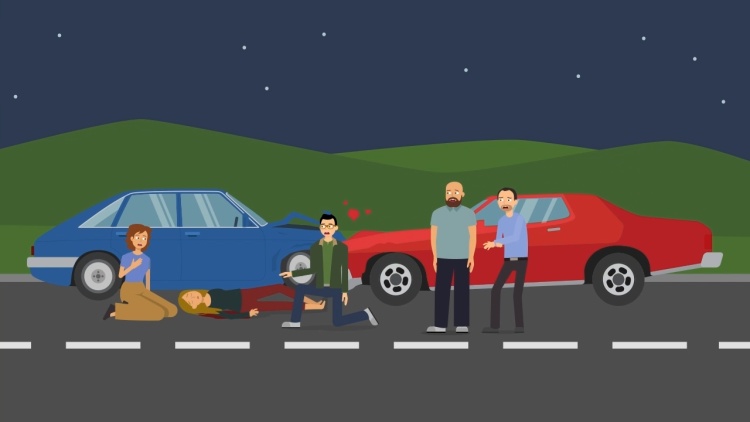People v. Traughber
Michigan Supreme Court
432 Mich. 208 (1989)
- Written by Samantha Arena, JD
Facts
David Traughber (defendant), a truck driver, was driving on a dark road. Traughber saw an oncoming vehicle approaching in the opposite lane. As he continued driving, Traughber suddenly noticed a large metal sign lying in front of him on the road. In an attempt to avoid the sign, Traughber swerved into the left lane. The oncoming vehicle, not realizing Traughber was already returning to his own lane, swerved to avoid Traughber. The two vehicles collided head-on, killing a passenger in the oncoming vehicle. Traughber was given numerous breathalyzer tests, resulting in readings of a .05 and .04 blood alcohol content. The State of Michigan (plaintiff) charged Traughber with negligent homicide. Before issuing his decision, the trial judge explained the standard of ordinary negligence, defining it as a failure to do what an ordinary, sensible person would have done under the same circumstances. The trial judge further stated that, given Traughber’s trucking experience, Traughber should have been able to make a better judgment call to avoid the sign on the right side of the road instead of creating an emergency by swerving into the oncoming lane. For these reasons, the trial judge convicted Traughber of negligent homicide. Traughber appealed, and the court of appeals affirmed. Traughber appealed again, contending that, in considering Traughber’s trucking experience, the trial judge inappropriately held Traughber to a standard higher than that of a reasonable, ordinary person.
Rule of Law
Issue
Holding and Reasoning (Riley, C.J.)
What to do next…
Here's why 907,000 law students have relied on our case briefs:
- Written by law professors and practitioners, not other law students. 47,100 briefs, keyed to 996 casebooks. Top-notch customer support.
- The right amount of information, includes the facts, issues, rule of law, holding and reasoning, and any concurrences and dissents.
- Access in your classes, works on your mobile and tablet. Massive library of related video lessons and high quality multiple-choice questions.
- Easy to use, uniform format for every case brief. Written in plain English, not in legalese. Our briefs summarize and simplify; they don’t just repeat the court’s language.





